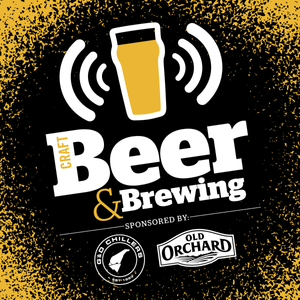
Cutting Tools
08/05/24 • 24 min
- Introduction: Chris welcomes listeners and introduces the topic of essential cutting tools for camping.
- Discussion Points:
- Importance of Cutting Tools: Overview of why cutting tools are crucial in camping and bushcraft.
- Axes:
- Types of Axes: Campers axe, boys' axe, felling axes, hatchets.
- Personal Preferences: Chris shares his experience with different axes, including the utility axe and the Eastwing camper's axe.
- Uses of Axes: Chopping trees, splitting firewood, carving, and more.
- Axe Maintenance: Importance of keeping axes sharp and tips for sharpening.
- Saws:
- Types of Saws: Buck saws, bow saws, folding saws.
- Personal Preferences: Chris discusses his preference for the Baco Laplander folding saw.
- Uses of Saws: Cutting small and large diameter logs, making notches, and primitive cooking tools.
- Multi-Tools:
- Versatility: Multi-tools as backup cutting tools and their various uses around the campsite.
- Modifying Multi-Tools: Customizing multi-tool components for specific tasks.
- Gear Selection:
- Budget-Friendly Options: Emphasizing the importance of practicality over brand names and expensive gear.
- Avoiding Gear Acquisition Syndrome (GAS): Encouraging listeners to focus on essential items and enjoy their time in the woods.
- Conclusion:
- Teaser for Next Episode: Chris previews the next episode on different types of cordage for camping.
- Call to Action: Encouraging listeners to like, follow, and subscribe on their preferred platforms.
🔥 Explore More from Speir Outdoors
All my links, gear, community, and content in one spot:
👉 links.speiroutdoors.com
Stay Connected
📖 Book: Primitive Camping & Bushcraft
☕ Coffee: Primitive Camping Roast
🎙️ Podcast Episodes
🎥 YouTube Channel
🧭 Socials, Blog, and More
Have questions or want to connect?
📩 Email: [email protected]
- Introduction: Chris welcomes listeners and introduces the topic of essential cutting tools for camping.
- Discussion Points:
- Importance of Cutting Tools: Overview of why cutting tools are crucial in camping and bushcraft.
- Axes:
- Types of Axes: Campers axe, boys' axe, felling axes, hatchets.
- Personal Preferences: Chris shares his experience with different axes, including the utility axe and the Eastwing camper's axe.
- Uses of Axes: Chopping trees, splitting firewood, carving, and more.
- Axe Maintenance: Importance of keeping axes sharp and tips for sharpening.
- Saws:
- Types of Saws: Buck saws, bow saws, folding saws.
- Personal Preferences: Chris discusses his preference for the Baco Laplander folding saw.
- Uses of Saws: Cutting small and large diameter logs, making notches, and primitive cooking tools.
- Multi-Tools:
- Versatility: Multi-tools as backup cutting tools and their various uses around the campsite.
- Modifying Multi-Tools: Customizing multi-tool components for specific tasks.
- Gear Selection:
- Budget-Friendly Options: Emphasizing the importance of practicality over brand names and expensive gear.
- Avoiding Gear Acquisition Syndrome (GAS): Encouraging listeners to focus on essential items and enjoy their time in the woods.
- Conclusion:
- Teaser for Next Episode: Chris previews the next episode on different types of cordage for camping.
- Call to Action: Encouraging listeners to like, follow, and subscribe on their preferred platforms.
🔥 Explore More from Speir Outdoors
All my links, gear, community, and content in one spot:
👉 links.speiroutdoors.com
Stay Connected
📖 Book: Primitive Camping & Bushcraft
☕ Coffee: Primitive Camping Roast
🎙️ Podcast Episodes
🎥 YouTube Channel
🧭 Socials, Blog, and More
Have questions or want to connect?
📩 Email: [email protected]
Previous Episode

Knife Selection
Introduction:
- Host: Chris Speir
- Welcome to the Primitive Camping and Bushcraft Podcast
- Today's topic: Knives, the most crucial tool next to a metal pot for any outdoor adventure
Key Points Discussed:
Types of Knives:
- Importance of a good sheath or belt knife
- Backup knife necessity
Personal Favorites:
- Morinive Garberg
- BPS Bushcraft II
- Uses: Cutting trees, saplings, splitting firewood, carving, cleaning game, cutting fish
Types of Steel:
- Stainless Steel: Malleable, less brittle, anti-corrosive, tarnish-resistant
- High Carbon Steel: Rigid, robust, prone to chipping and cracking, superior for ferro rod fire starting, more rust-prone
Knife Tangs:
- Full Tang: Strong, extends through the handle
- Partial Tang: Weaker, handle made around it, more affordable
Grinds:
- Scandinavian (Scandi) Grind: Common, easy to sharpen
- Flat Grind: Similar ease of sharpening
- Hollow Grind: Sharp and precise, ideal for delicate tasks, prone to damage
- Convex Grind: Robust and durable, challenging to sharpen
Spine of the Knife:
- Importance of a sharp 90-degree spine for fire starting
- Avoid flashy, powder-coated knives
Sharpening Techniques:
- Tools: Stones, diamond plates, ceramic sharpeners, leather belts
- Strop or leather belt use for maintaining sharpness
Knife Length:
- Ideal length: 4-5 inches blade, total length 9-10 inches
- Importance of blade thickness for durability
Personal Techniques:
- Energy conservation by burning logs instead of splitting
- Primary and backup knives carried by Chris
Conclusion:
- Quick guide on selecting a knife
- Invitation for listener questions and feedback
- Mention of the book "Primitive Camping and Bushcraft"
- Encouragement to follow and review the podcast
🔥 Explore More from Speir Outdoors
All my links, gear, community, and content in one spot:
👉 links.speiroutdoors.com
Stay Connected
📖 Book: Primitive Camping & Bushcraft
☕ Coffee: Primitive Camping Roast
🎙️ Podcast Episodes
🎥 YouTube Channel
🧭 Socials, Blog, and More
Have questions or want to connect?
📩 Email: [email protected]
Next Episode

Essential Cordage for Camping
Show Notes:
Introduction:
- Welcome and introduction by Chris Speir.
- Brief overview of the episode's focus on cordage.
Importance of Cordage:
- Definition and significance of cordage (string or rope) in camping and bushcraft.
- Discussion on the time-consuming nature of making cordage in the wild.
Types of Cordage:
- Paracord:
- Description and historical background of paracord (550 cord).
- Breakdown of its structure and tensile strength.
- Various uses of paracord, including fishing line and crafting tools.
- Bank Line:
- Introduction to tarred and twisted bank line.
- Comparison between paracord and bank line in terms of cost and utility.
- Common applications of bank line, such as trot lines for fishing.
Natural Cordage:
- Explanation of making cordage from natural materials like palmetto stalks and yucca plants.
- Techniques for processing plant fibers into cordage.
- Uses of natural cordage for various tasks in the wild.
Making Cordage:
- Step-by-step process of creating natural cordage using the reverse wrap and twist method.
- Examples of materials and plants suitable for making cordage, including grapevines and willow bark.
Practical Tips:
- Benefits of carrying both paracord and bank line during camping trips.
- Recommendations for the amount and type of cordage to bring.
Conclusion:
- Recap of the importance of cordage in outdoor activities.
- Encouragement to practice making natural cordage.
- Call to action: Follow the podcast, subscribe to the YouTube channel, and join the Primitive Camping and Bushcraft Facebook group.
🔥 Explore More from Speir Outdoors
All my links, gear, community, and content in one spot:
👉 links.speiroutdoors.com
Stay Connected
📖 Book: Primitive Camping & Bushcraft
☕ Coffee: Primitive Camping Roast
🎙️ Podcast Episodes
🎥 YouTube Channel
🧭 Socials, Blog, and More
Have questions or want to connect?
📩 Email: [email protected]
If you like this episode you’ll love
Episode Comments
Generate a badge
Get a badge for your website that links back to this episode
<a href="https://goodpods.com/podcasts/primitive-camping-and-bushcraft-502816/cutting-tools-66979840"> <img src="https://storage.googleapis.com/goodpods-images-bucket/badges/generic-badge-1.svg" alt="listen to cutting tools on goodpods" style="width: 225px" /> </a>
Copy




